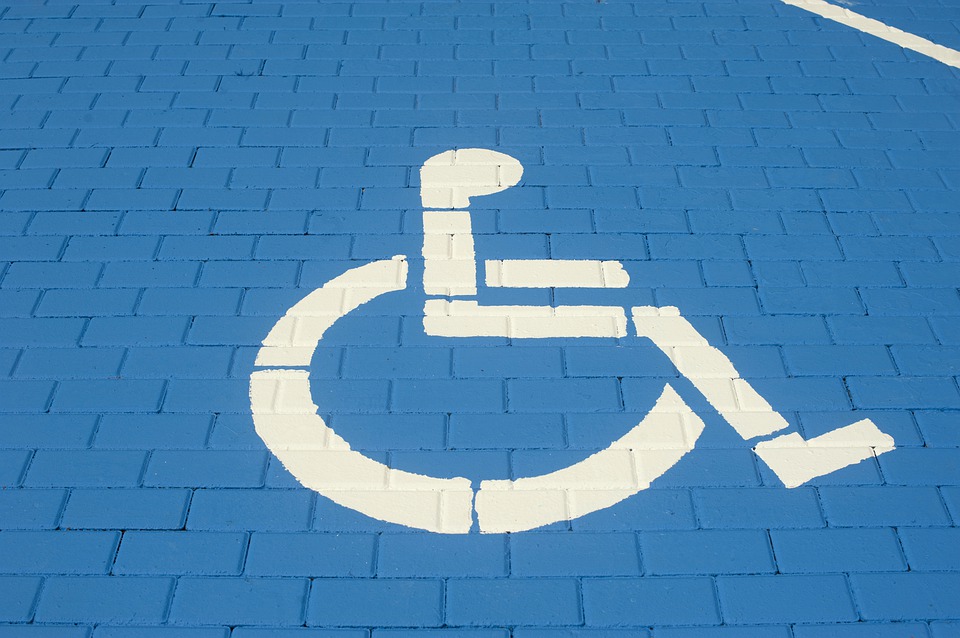Is Height A Qualifying Condition For A Disabled Parking Permit?

Access to disabled parking in the United States is top tier. The program provides ample opportunity and availability for those with qualifying conditions to access parking that can make their daily lives easier.
Disabled parking spots can make all the difference for a person who has limited mobility due to any number of conditions, eliminating their need to exacerbate their condition just to go to an appointment or grocery store. But is there such a thing as a height disability parking permit? Can you get a handicap placard for being short?
Can you get a handicap sticker for being under 5 feet?
Being short is not generally considered a disability. Under the Americans with Disabilities Act (ADA), for a person to qualify as disabled, they need to have an impairment that creates great obstacles in completing and participating in major life activities.
For example, if a person is under five feet tall but has no difficulty with mobility or driving, it’s not likely that they will qualify under the ADA. On the other hand, if a person has diastrophic dwarfism, a health condition that could potentially affect mobility due to joint differences and curvature of the spine, they would qualify for a permit.
Can you get a handicap sticker for being tall?
As with being short, being excessively tall is also not considered a disability in its own right. However, people with extreme tallness caused by a condition such as gigantism could end up suffering from more chronic health conditions than their average-height counterparts.
Gigantism is a condition caused by an excessive amount of growth hormone being released while a child grows. Conditions that are often associated with gigantism include enlargement of the hands and feet, which could pose mobility issues in adulthood; arthritis; an increased risk for heart disease; and vision loss. All of these repercussions qualify under the ADA as disabilities that could allow a person to have access to a handicap placard.

Will extreme height or lack thereof ever be considered a disability?
Although height doesn’t count as a disability now, people on both ends of the spectrum have been vying to have it at least considered. One specific occurrence of this happened in 2013 when a woman felt as though she was disabled for a certain position within her workplace because of her short stature. She filed a claim with a court, and the ADA found that it might be a valid complaint against her employer.
On the flip side, another movement was launched claiming that a man was discriminated against while on an airplane because of his tallness. He claimed that he was made to stand in the aisle the entire flight because he couldn’t fit in the seat. The movement, aptly named “Tall Consumerism”, was launched back in 2009, but didn’t garner any true changes in disability law.
Disabled parking availability and qualifying conditions
By law, parking lots are required to have the minimum amount of designated parking spots depending on the size of the parking facility. In smaller lots with only 1–25 total spots, there needs to be at least 1 handicap spot available. The numbers grow as the parking facility gets bigger, up to 20 per 1000 spots, and then 1 per 100 thereafter.
There are many conditions that fall into the category of handicap parking permit allowance. People with advanced lung or heart conditions, limited mobility or a partial use of their legs, vision problems including partial or low-vision, certain neurological conditions, arthritis or arthritis-related diseases, and the loss of limbs all qualify for a handicap parking placard.

Being overly short or tall isn’t enough to qualify for a handicap parking permit unless it has a direct influence on a person’s health and mobility. Generally speaking, one of the aforementioned conditions needs to be present for someone to be considered a candidate for a handicap parking permit.
However, if being short or tall has led to a mobility issue or other health problem, it could be said that it is the first step towards being able to qualify for a handicap permit. Some believe that changes to the ADA should be made to accommodate people with limited or excessive stature, but those changes have yet to take place for Americans.
Featured image by SnapwireSnaps on Pixabay